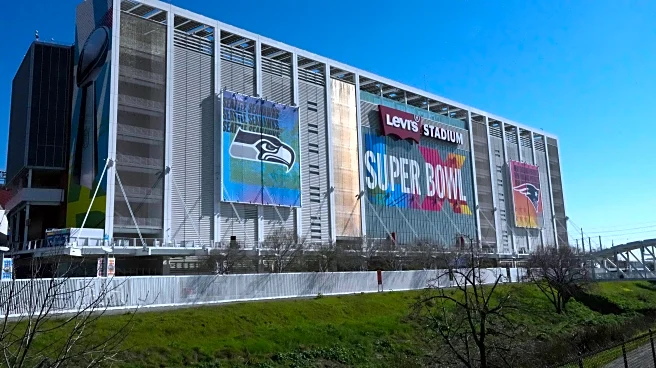What is the story about?
What's Happening?
More than half of the states contributing National Guard troops to President Trump's federal law enforcement initiative in Washington have set target dates for their withdrawal later this fall. The deployment was initially activated in August after President Trump issued an executive order citing crime concerns, placing the local police department under his authority for 30 days. Although Congress did not renew the order, approximately 2,300 Guard members from eight states, as well as D.C., remained in the city. The planned withdrawals, set for late October and November, signal a potential drawdown or change in scope of the troop presence. States like Georgia, Mississippi, South Carolina, Ohio, and West Virginia have announced their planned end dates, while others have not yet responded.
Why It's Important?
The withdrawal of National Guard troops from Washington, D.C., marks a significant shift in the federal law enforcement strategy initiated by President Trump. The presence of these troops has been a point of contention, with some residents and local officials questioning the necessity and efficiency of the deployment. The drawdown could alleviate concerns about the normalization of military presence in civilian areas and reduce tensions between federal and local authorities. Additionally, the move may impact crime rates and public safety perceptions in the capital, as the initiative was credited with reducing crime during its implementation.
What's Next?
As the withdrawal dates approach, local authorities and residents may experience changes in public safety dynamics. The D.C. National Guard deployment is expected to continue through December, and a lawsuit challenging the deployment is scheduled for a hearing on October 24. The outcome of this legal challenge could influence future federal law enforcement strategies and the use of National Guard troops in civilian areas. Furthermore, the planned drawdown may prompt discussions on alternative crime reduction measures and the role of federal intervention in local policing.
Beyond the Headlines
The deployment and subsequent withdrawal of National Guard troops in Washington, D.C., highlight broader issues of federal authority and local autonomy. The initiative raises questions about the balance between national security and civil liberties, as well as the ethical implications of using military forces for domestic law enforcement. The situation also underscores the importance of transparent communication and collaboration between federal and local governments in addressing public safety concerns.















